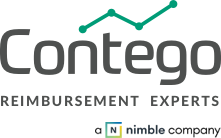Industry Awareness
ASCs Growing at a 6% Pace
CMS’s last ASC reporting data indicates the number of ASCs is growing at a 2.4% annual rate. The 107 new ASCs either opened or reported to be opening through the first half of 2019 moves that to a 6% growth rate for the year. Six ASC closings put a slight dent in growth statistics. Multispecialty ASCs cover a full 40% of the total ASC market. The most common single-specialty ASCs are in gastroenterology and ophthalmology.
Could Florida ASCs Be Offering 48-Hour Stays?
The short answer is “Yes.” The Florida House of Representatives has sponsored a bill that not only allows patients to stay up to 48 hours, but would also enable Recovery Care Centers to keep patients for up to 72 hours after surgery. This is not Florida’s first go at this issue, the Sunshine State has been working on it consistently since 2014. In May, the state successfully moved to allow 23 hour 59 minute ASC stays. The proposed expansion to 48 hours is part of a very busy legislative session that will reshape Florida’s health care industry.
Trends
More Hips and Knees in ASCs
Demand for joint replacements and demand for them in convenient, less expensive locations are rising concurrently. Fifty-seven percent of all non-fracture knee and hip replacement surgeries will be performed in outpatient surgery centers by 2028. That constitutes a forty-two percent jump in just 10 years. Though knees will represent the majority of those total joint surgeries, total hip surgeries are also becoming more commonly performed in outpatient centers.
Drug Price Disclosure and Opioid Scrutiny
Price transparency is a big story in medicine, but nowhere is it bigger than in the pharmaceutical industry. If the current CMS rule requiring drug makers to include list prices for medicine costing over $35 a month holds against intense pharmaceutical lobbying, we will all see drug prices in television ads by the end of July. Even though this CMS effort could produce significant long-lasting change, that story has gone under the radar in comparison with the big noise the state of Maryland, among others, has made by suing OxyContin-maker, Purdue Pharma, for their role in the opioid epidemic.
Health Care Digital Transformation Watch
Health Care Automation both Low and Critical
Among health care providers, we typically think of hospitals as having the most advanced level resources, due to size and scope. Even so, hospital and health system financial leaders went on record saying that only 25% of their revenue cycle management and financial operations are automated. Investment in automation is critical to health systems survival, largely due to competitive forces. Seventy-nine percent of CFOs plan to increase their investment by the end of Q1 2020.
Revenue Cycle
Outsourcing Medical Billing is Gaining Traction
A 2018 survey of practice staff conducted by medical office software provider, Kareo, found that 28% of health care providers are likely to outsource their medical billing in the next two years. Revenue Cycle Management (RCM) services are growing at a 12% per year clip and are expected to grow at a 20% rate in the very near future. Medical billing companies tend to be young (26% have been around fewer than two years) and focused on specific medical specialties. The demand for RCM outsourcing is even greater among hospitals, with a recent survey revealing that 80% of hospital leaders are considering outsourcing in the immediate future as a means of cost reduction and reimbursement production.
Legal
Medical Device Failure Was Concealed for Years. What Happens Now?
by Laura Raymond, Contego Paralegal, from the office Jon Sistare, JD, Contego Attorney
The medical world was shocked in March when Kaiser Health News reported that hundreds of thousands of adverse events involving common medical devices were not made public, because the FDA had granted their manufacturers a reporting exemption that allowed them to file the incidents in a previously unknown secret database. The devices implicated include one of the most commonly used surgical tools: surgical staplers. In 2016 alone, the public database for device failures, MAUDE, showed fewer than 100 stapler-related injuries nationwide. However, in wake of KHN’s report, the FDA acknowledged that nearly 10,000 stapler injuries had been secretly reported in that year alone. From 2011 through 2018, over 100,000 stapler malfunctions were funneled into the ‘alternative summary reporting’ database, constituting nearly 10% of the 1.1 million device-related injuries that were concealed from the public during that time.
The long-term implications of this reporting remain to be seen. Although the FDA has since ended the alternative summary reporting program, it has given no timeline as to when all of the unseen reports will be entered into MAUDE or otherwise publicized. Victims of stapler and other device failure may now have new leverage to pursue claims against manufacturers or the FDA, since the establishment of the secret reporting program did not follow typical administrative procedures for doing so. Surgical practices can take this opportunity to ensure that all of the devices they use are not unsafe for patients or particularly prone to malfunction by crosschecking them in MAUDE and researching whether the manufacturer was granted a reporting exemption. Until the FDA releases the complete data, it will be difficult to grasp the full extent of the problem and its consequences, both legal and medical.
At a Glance
Choosing the Best ASC for Your Procedures
Physician-to-Physician Advice for Finding Excellent ASCs for Operations
Convoluted Prior-Authorizations Creating Challenges
AMA Survey Points to Care Continuity Interference
Workers Get Option for Non-PPACA Plans Starting in 2020
Administration Expands Pre-Tax Health Insurance Accounts
Healthcare Spending Accelerated in Q1
Total Spending a 4.6% Increase over Q1 2018
Medical Crew Serenades Patient
North Carolina Medic Discovers Musical Way to Relax Patients
To subscribe or unsubscribe to ASCs in Motion, simply send an email request to info@contegollc.com.
